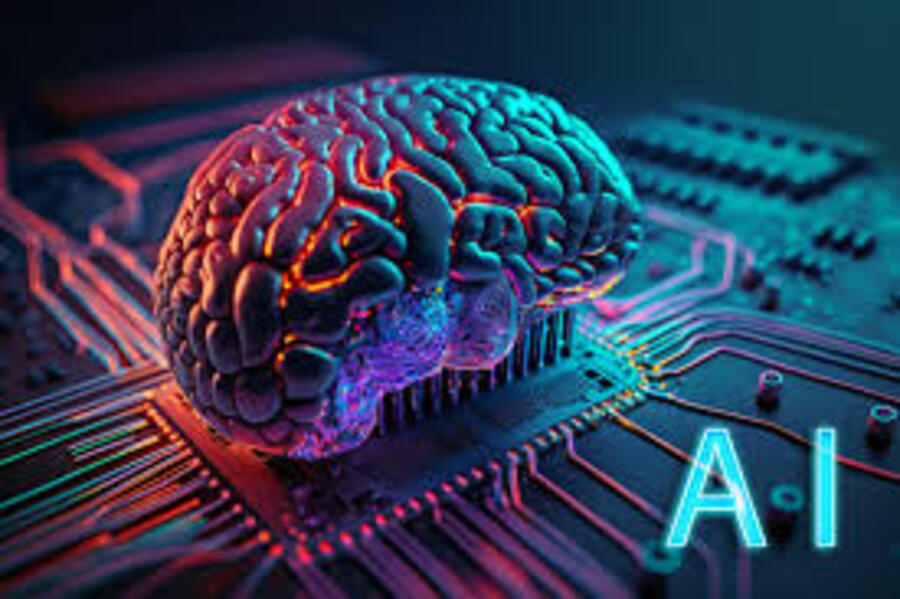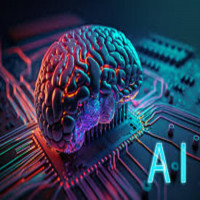"Unlocking the Future: The Power and Potential of Artificial Intelligence"

Strong 8k brings an ultra-HD IPTV experience to your living room and your pocket.
Artificial Intelligence (AI) is no longer a futuristic concept—it's a driving force in industries, reshaping how we work, live, and interact with technology. From healthcare to finance, the influence of AI is undeniable, and its continued evolution is poised to redefine what we think is possible in the modern world. This article explores the depths of AI, its applications, and its potential to shape our future.
What is Artificial Intelligence?
Artificial Intelligence refers to the simulation of human intelligence in machines that are programmed to think and learn. AI systems can perform tasks that traditionally required human intelligence, such as problem-solving, speech recognition, decision-making, and more. Since its inception, AI has evolved dramatically, stemming from early developments in algorithms and computer science to the complex neural networks used today.
Types of Artificial Intelligence
AI comes in various forms, each with its scope and limitations.
Narrow AI: This is the most common form of AI, designed to perform specific tasks. Virtual assistants like Siri or Alexa are prime examples of Narrow AI, focusing on single tasks with high efficiency.
General AI: A theoretical form of AI that could perform any intellectual task that a human can. While still in development, General AI represents the ideal of creating machines that can mimic human cognition.
Superintelligent AI: This speculative form surpasses human intelligence, with the capability to outperform the best human minds in every aspect, including creativity and social intelligence.
How AI Works
Artificial Intelligence operates through the use of several advanced technologies:
Machine Learning: AI systems learn from data by identifying patterns and making decisions with minimal human intervention. It’s the backbone of most AI applications today.
Deep Learning: A subset of machine learning, deep learning uses neural networks with multiple layers to analyze data, particularly useful in recognizing images or speech.
Neural Networks: These are algorithms modeled after the human brain, allowing machines to recognize patterns and make decisions with greater accuracy.
Key Applications of Artificial Intelligence
AI’s influence is vast, with applications in numerous sectors:
Healthcare: AI helps in diagnosing diseases, developing personalized treatment plans, and even aiding in surgeries with the help of robotic systems.
Education: Adaptive learning systems use AI to tailor educational experiences to the needs of each student.
Finance: AI analyzes vast amounts of financial data to detect fraud, manage assets, and make predictions about the stock market.
Transportation: Autonomous vehicles and smart traffic management systems are powered by AI, promising safer and more efficient travel.
Retail: AI personalizes shopping experiences, manages supply chains, and predicts customer preferences.
The Role of AI in Automation
Automation powered by AI is transforming industries by enhancing efficiency and reducing human error.
Robotics and AI: Intelligent robots are used in manufacturing, healthcare, and even space exploration to perform tasks that are dangerous or tedious for humans.
Process Automation: AI automates routine business processes like data entry and customer service, allowing companies to focus on higher-level tasks.
AI in Manufacturing: AI-driven robots can work 24/7, increasing productivity while reducing labor costs and ensuring consistent quality.
AI and Big Data
The explosion of data in the digital age has fueled the rise of AI.
How AI Analyzes Data: AI algorithms sift through vast amounts of data to uncover patterns and insights that would be impossible for humans to detect.
The Relationship between AI and Big Data: Big Data provides the fuel for AI’s analytical engines, and AI, in turn, offers tools to make sense of this massive amount of information.
Ethical Implications of Artificial Intelligence
While AI holds great promise, it also presents ethical challenges.
AI and Privacy: AI’s ability to analyze personal data raises concerns about privacy and surveillance.
AI in Decision Making: The use of AI in critical decisions, such as hiring or law enforcement, can lead to bias if the data used to train the algorithms is biased.
Bias in AI: AI systems can perpetuate existing societal biases, which is why it’s critical to ensure fairness in AI design and deployment.
Challenges in AI Development
Despite the rapid advancement of AI, several challenges remain.
Technical Challenges: Developing AI that can handle complex, real-world scenarios requires advancements in computing power, algorithms, and data collection.
Economic Impact: AI-driven automation could lead to job displacement in various industries, sparking debates about the future of work.
Societal Challenges: Ensuring equitable access to AI technologies and mitigating their potential for misuse are significant concerns.
Future Trends in Artificial Intelligence
AI is expected to evolve alongside other cutting-edge technologies.
AI and Quantum Computing: Combining AI with quantum computing could dramatically increase processing power, opening up new possibilities in science and engineering.
Note: IndiBlogHub features both user-submitted and editorial content. We do not verify third-party contributions. Read our Disclaimer and Privacy Policyfor details.


